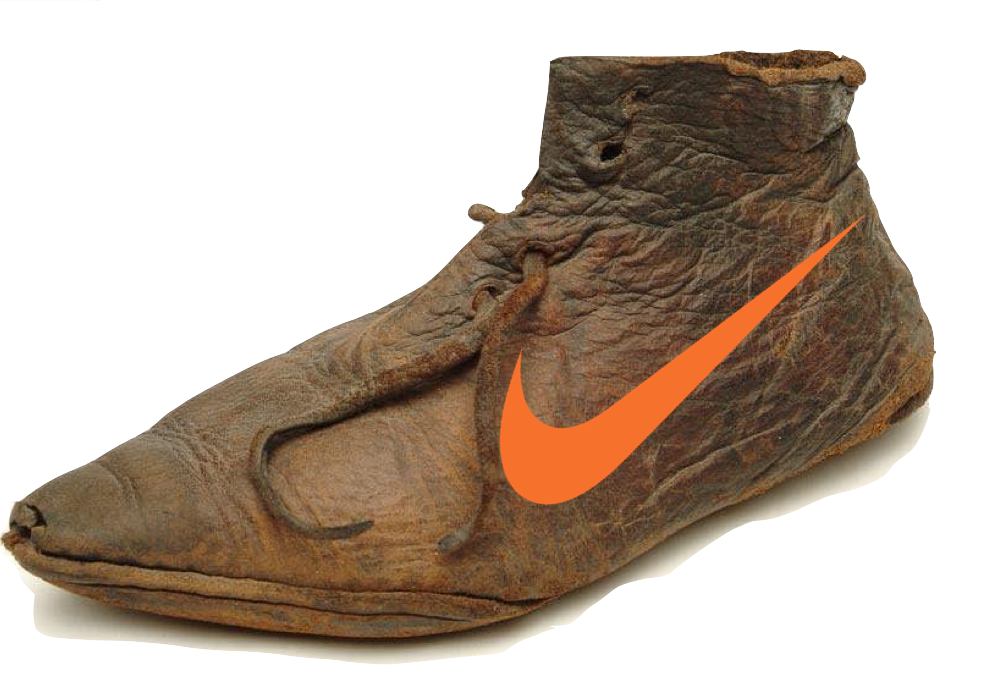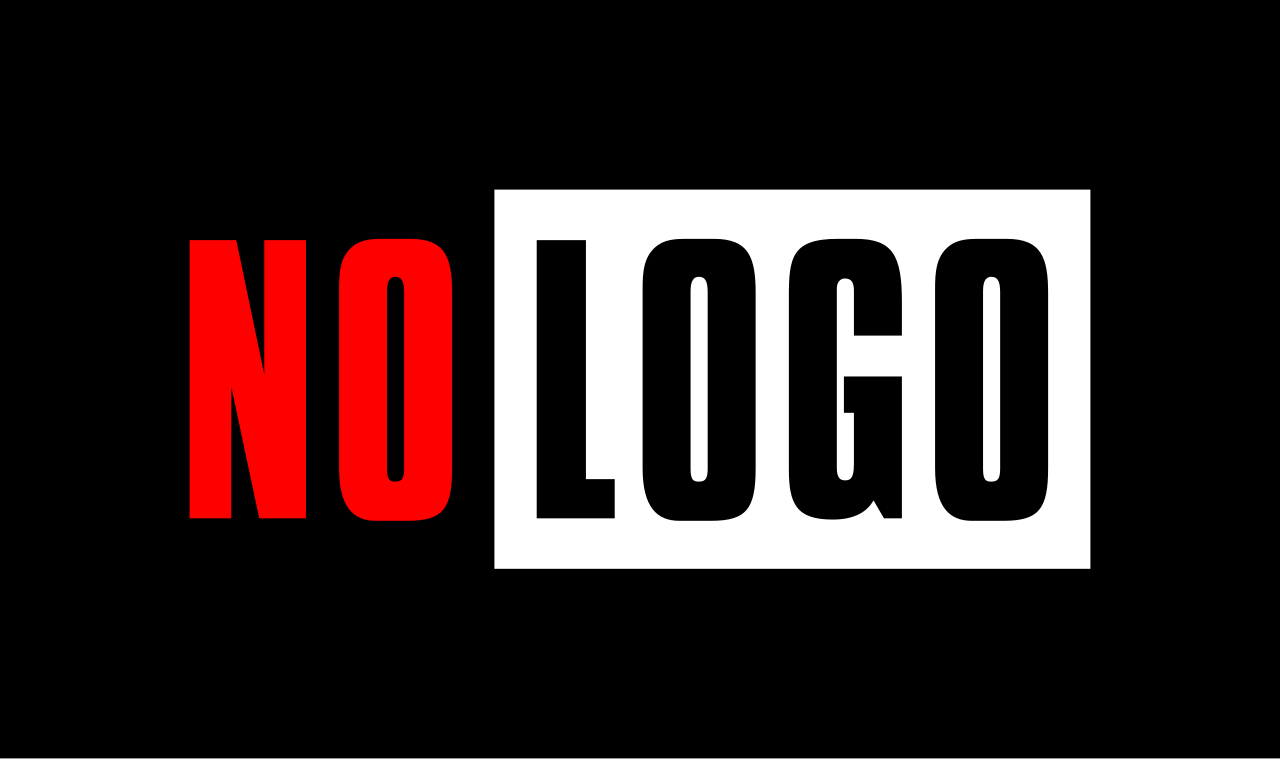

ブランドなんかいらない!!
No Logo
☆ No Logo! – 市場支配力をめぐるグローバル企業の戦い – 多くの敗者と少数の勝者が出るゲーム – は、カナダ人ジャーナリスト、ナオミ・クラインによる著書のドイツ語タイトルである。この本では、ブランドのグローバル化と、伝統的な製造企業がライフス タイルマーケティング企業へと変貌を遂げること、すなわち純粋なロゴ企業へと変貌を遂げることが分析されている。2000年に英語で出版されたこの本は、 近年最も影響力のあるノンフィクションの1冊と考えられており、「グローバリゼーション批判のバイブル」とも呼ばれている。
| No Logo! – der Kampf der Global Players um Marktmacht
– ein Spiel mit vielen Verlierern und wenigen Gewinnern ist der
deutsche Titel eines Buches der kanadischen Journalistin Naomi Klein,
in dem die Globalisierung von Marken und die Entwicklung von
klassischen, produzierenden Herstellerfirmen hin zu
Lifestyle-Vermarktungsunternehmen, also reinen Logofirmen, analysiert
wird. Das im Jahr 2000 auf Englisch erschienene Buch gilt als eines der
einflussreichsten Sachbücher der letzten Jahre und wird auch als „Bibel
der Globalisierungskritiker“ bezeichnet. |
No
Logo! – 市場支配力をめぐるグローバル企業の戦い – 多くの敗者と少数の勝者が出るゲーム –
は、カナダ人ジャーナリスト、ナオミ・クラインによる著書のドイツ語タイトルである。この本では、ブランドのグローバル化と、伝統的な製造企業がライフス
タイルマーケティング企業へと変貌を遂げること、すなわち純粋なロゴ企業へと変貌を遂げることが分析されている。2000年に英語で出版されたこの本は、
近年最も影響力のあるノンフィクションの1冊と考えられており、「グローバリゼーション批判のバイブル」とも呼ばれている。 |
| Geschichte Mit „No Logo!“ wurde Naomi Klein im Jahr 2000 Gesicht und Stimme der globalisierungskritischen Bewegungen. Sie galt durch ihr erstes Buch als die „einflussreichste Person unter 35 Jahren“ (The Times). Die britische Wochenzeitung The Observer bezeichnete das Buch als „das neue ‚Kapital‘“. 2001 erhielt Klein als bisher jüngste Autorin den kanadischen „National Business Book Award“ für das Jahr 2000. Naomi Klein schildert den „Markenwahn“ unter den weltweiten „westlichen“, d. h. von „westlichen“ Verhaltensweisen geprägten Kindern und Jugendlichen und die Mechanismen, mit denen die Konzerne, die Markeninhaber, die suchtmäßige Gier nach diesen Markenartikeln lebendig erhalten. Die Autorin setzt sich kritisch mit der wirtschaftlichen Globalisierung auseinander, wie der Verlagerung von Arbeitsplätzen in „Sweatshops“ der Niedriglohnländer: Dadurch dass die Produktion in immer ärmere Länder mit immer billigeren Arbeitskräften verlagert wird, bliebe der Standard der Arbeitsverhältnisse in den Industriestaaten wie z. B. die Sozialversicherung auf der Strecke. Die Produktion von Markenfirmen werde von namenlosen Vertragsunternehmern in zeitlich beschränkt existierenden Fabriken innerhalb von steuerbefreiten oder subventionierten Freihandelszonen geleistet, die Logofirmen, insbesondere Hersteller von Bekleidung und Sportartikeln wie Nike, Gap, Adidas, beschränkten sich lediglich auf die Ausgestaltung der Werbe-Markenartikel. Klein bemerkt, dass soziale Experimente wie „Reclaim the Streets“ in rund zwanzig Ländern der Welt ihre Nachahmung fänden. Ihre Thesen wurden in mehreren Büchern wieder aufgegriffen, z. B. im 2001 erschienenen „Schwarzbuch Markenfirmen“ oder 2006 in „Konzern, Kritik, Kampagne!“.  Die Autorin im September 2007 Naomi Klein hatte ursprünglich einen Vertrag mit dem kanadischen Verlag Knopf unterzeichnet, der dann von Bertelsmann aufgekauft wurde. Das Buch der Kritikerin der großen Konzerne erschien somit in der Buchsparte eines der größten Medienkonzerne der Welt. Im Jahr 2001 folgte die deutsche Ausgabe und hielt sich monatelang in den Bestsellerlisten. |
経歴 2000年に『No Logo!』を出版し、ナオミ・クラインはグローバリゼーション批判運動の顔となり、その代弁者となった。彼女の処女作は、彼女を「35歳未満で最も影響 力のある人物」に選ばせた(タイムズ紙)。英国の週刊新聞『オブザーバー』は、この著書を「新しい『資本論』」と評した。2001年には、2000年度の カナダ「ナショナル・ビジネス・ブック・アワード」を最年少で受賞した。 ナオミ・クラインは、世界中の子供や若者たちの「ブランド・マニア」について述べている。彼らは「西洋」の行動や、ブランド所有者である企業がブランド品への中毒的な欲求を維持するメカニズムに影響を受けている。 著者は経済のグローバル化と低賃金国への仕事の移転を批判的に見ている。著者は、生産拠点をますます貧しい国々へと移し、ますます安い労働力に頼ること で、社会保障などの先進国の労働条件の基準が低下していると主張している。ブランド企業の生産は、免税または助成金付きの自由貿易地域内に限られた期間だ け存在する工場で、名もない請負業者が行っている。一方、ロゴ企業、特にナイキ、ギャップ、アディダスなどの衣料品やスポーツ用品メーカーは、ブランド商 品の広告デザインに専念しているだけである。クラインは、「ストリートを奪還せよ」のような社会実験が世界20カ国で模倣されていると指摘している。彼女 の論文は、2001年に出版された『ブランド企業のブラック・ブック』や2006年の『企業、批判、キャンペーン!』など、いくつかの書籍で再び取り上げ られている。  著者のクライン,2007年9月 当初カナダの出版社Knopfと契約を交わしたが、同社はその後ベルテルスマンに買収された。こうして大企業批判家の著書は、世界最大のメディア複合企業 のひとつであるベルテルスマンの書籍部門から出版されることとなった。ドイツ語版は2001年に出版され、数ヶ月間ベストセラーリストにランクインした。 |
| Rezensionen Der Soziologe Colin Crouch ist der Meinung, dass Naomi Klein in No Logo! „brillant analysiert“, wie global agierende Unternehmen gesamte Herstellungsprozesse ausgliedern und sich auf Finanztransaktionen beschränken, um weitgehend unabhängig von der tatsächlichen Qualität ihrer Produkte als zentrale Aufgabe das Markenimage weiterzuentwickeln, indem die Marke mit attraktiven Bildern, Begriffen und Prominenten in Zusammenhang gebracht wird.[1] Paul Seabright meint, No Logo! sei von einer Inkonsistenz geprägt, da Klein einerseits eine Allmacht großer Marken postuliere, andererseits aber einen Überlebenskampf dieser Marken untereinander beschreibe. Beide Argumente könnten jedoch nicht gleichzeitig korrekt sein. So seien einige von Kleins Beispielen (etwa die Jeansmarke Levi’s) bereits zum Zeitpunkt der Buchveröffentlichung schwach gewesen.[2] |
レビュー 社会学者のコリン・クラウチは、ナオミ・クラインが『No Logo!』で、グローバル企業が製造工程のすべてを外部委託し、金融取引に限定することで、ブランドイメージの確立を主要な業務とし、そのブランドを魅 力的なイメージ、用語、有名人と関連付けることで、実際の製品の品質とはほとんど関係なく、ブランドを展開していることを「見事に分析」していると考えて いる。 ポール・シーブライトは、『No Logo!』の特徴は一貫性のなさにあると考えている。なぜなら、クラインは、一方では大手ブランドの全能性を仮定しているが、他方ではそれらのブランド 間の生存競争について述べているからだ。しかし、両方の主張が同時に正しいということはありえない。クラインの例の一部(ジーンズブランドのリーバイスな ど)は、この本が出版された時点で既に弱体化していた。 |
| Ehrungen Das Buch gewann den mit 20.000 CAN$ dotierten kanadischen National Business Book Award 2000, der von PricewaterhouseCoopers zusammen mit der Bank of Montreal und the Globe and Mail seit 1985 jährlich vergeben wird[3] und den vom französischen Senat mitorganisierten Prix Médiations 2001.[4] Ferner war No Logo unter den fünf für den Guardian First Book Award 2000 nominierten Büchern.[5] |
受賞 この本は、1985年よりプライスウォーターハウスクーパース、モントリオール銀行、グローブ・アンド・メール紙が共同で毎年授与している、2万カナダド ル相当の2000年カナダ全国ビジネス書賞を受賞した。また、2001年には、フランス元老院が共催するPrix Médiations賞も受賞した。さらに、『No Logo』は、2000年のガーディアン・ファースト・ブック賞にノミネートされた5冊の書籍の1つであった。2000年のガーディアン・ファースト・ ブック・アワードの最終候補作5冊。 |
| Textausgaben Naomi Klein: No logo : taking aim at the brand bullies. Knopf, Canada 2000, ISBN 0-676-97130-X. Naomi Klein: No Logo! Der Kampf der Global Players um Marktmacht. Ein Spiel mit vielen Verlierern und wenigen Gewinnern. Aus dem Amerikanischen von Helmut Dierlamm und Heike Schlatterer. Riemann, München 2001, ISBN 3-570-50018-7. https://de.wikipedia.org/wiki/No_Logo |
テキスト版 ナオミ・クライン著『No logo : taking aim at the brand bullies.』カナダ、Knopf、2000年、ISBN 0-676-97130-X. ナオミ・クライン著『No Logo! グローバル企業の市場支配力との闘い。多くの敗者と少数の勝者によるゲーム』ヘルムート・ディールラムとハイケ・シュラッテラーによる英訳。リーマン社、ミュンヘン、2001年、ISBN 3-570-50018-7。 |
| 『ブランドなんか、いらない』(No Logo: Taking Aim at the Brand Bullies)とは、カナダのジャーナリスト ナオミ・クラインが1999年に発表した著作である。 |
|
| 概要 20世紀末の国際社会において経済的および政治的な結びつきがいっそう強化されていくグローバリゼーションが進行する一方で、同時にこのような世界情勢に 対して抵抗を試みる反グローバリゼーション運動が発生していた。例えば1999年11月にはシアトルで開催された世界貿易機関(WTO)の会合に対して、 世界各地から参集した環境保護や労働運動など多様なNGO団体による抗議活動が展開された。クラインは在学中からこの問題について調査を始め、卒業後には 海外での取材にも乗り出し、企業の権力や労働問題をめぐる政治対立の顕在化およびその問題点に迫った。このような調査の上で彼女は本書を発表し、フランス 語版がカナダ、アメリカ、イギリスで出版された後に世界29ヶ国語に翻訳されて世界的に普及していった。日本語版も2001年に翻訳出版されている。本書 の内容は第1部奪われた公共空間(No space)、第2部奪われた選択肢(No choice)、第3部奪われた仕事(No jobs)、第4部そして反撃は始まった(No logo)、の4部から構成されている。 この著作では基本的に経済的なグローバリゼーションを背景としながら成長している多国籍企業での労働の実態を描き出している。そして、そのような国際的に 有名なブランドを保持して影響力を行使している企業に対する活動家の反企業運動を記述する。クラインの意図とは、世界を超えて広がりつつある経済システム と企業の権力について分析を加えることによって、新しい市民運動の可能性を示すことにあった。クラインの説明によれば、19世紀後半にブランドが成立して から企業は自社のブランドを計画的に形成しながら都市、音楽、スポーツ、学校、社会運動などに展開させ、自社の知名度と影響力を国際的に拡大し続けてき た。こうして台頭したブランドは結果として人々が公共空間と選択肢を明け渡すように仕向けていると指摘されている。クラインが特に強調しているのはこのブ ランドによってもたらされる失業や労働の問題である。彼女は商品を海外で生産して輸入する方法を採っているナイキを代表的な事例として挙げながら、企業が 自由貿易を活用しながら世界各地で労働力を使い捨てていると主張する。このような情勢の中で、反企業運動や反グローバリゼーション運動の活動家によって採 用されている戦略は企業のブランドの価値を破壊する戦略である。実際に、ナイキ、シェル、マクドナルドに対するブランド攻撃は企業の方針を変更させるに 至った。このような戦略を通じて、世界的に結びつきを強めながら、多国籍企業の権力を規制し、弱める国際的な市民運動が成長しつつあるものと論じられてい る。 https://x.gd/PaJKh |
|
| No Logo: Taking Aim at the Brand Bullies is a book by the Canadian author Naomi Klein. First published by Knopf Canada and Picador in December 1999,[1][2] shortly after the 1999 Seattle WTO protests had generated media attention around such issues, it became one of the most influential books about the alter-globalization movement and an international bestseller.[3] | 『No Logo: Taking Aim at the Brand Bullies』は、カナダ人作家ナオミ・クラインによる著書である。1999年12月にカナダのノット・カナダ社とピカドール社から初版が出版された [1][2]。1999年のシアトルWTO抗議運動がこのような問題についてメディアの注目を集めた直後のことであり、この本は、オルターグローバリゼー ション運動に関する最も影響力のある本のひとつとなり、国際的なベストセラーとなった[3]。 |
| Focus The book focuses on branding and often makes connections with the anti-globalization movement. Throughout the four parts ("No Space", "No Choice", "No Jobs", and "No Logo"), Klein writes about issues such as sweatshops in the Americas and Asia, culture jamming, corporate censorship, and Reclaim the Streets. She pays special attention to the deeds and misdeeds of Nike, The Gap, McDonald's, Shell and Microsoft – and of their lawyers, contractors, and advertising agencies. [4] While globalization appears frequently as a recurring theme, Klein rarely addresses the topic of globalization itself, and when she does, it is usually indirectly. She goes on to discuss globalization in much greater detail in her book Fences and Windows (2002). |
焦点 この本はブランディングに焦点を当て、反グローバリゼーション運動との関連をたびたび指摘している。4つのパート(「No Space」、「No Choice」、「No Jobs」、「No Logo」)を通して、クラインは南北アメリカやアジアにおけるスウェットショップ、カルチャー・ジャミング、企業の検閲、Reclaim the Streetsなどの問題について書いている。彼女は特に、ナイキ、ギャップ、マクドナルド、シェル、マイクロソフトの功罪、そしてそれらの企業の弁護 士、請負業者、広告代理店の行為や悪行に注目している。[4] グローバリゼーションは繰り返し登場するテーマであるが、クラインはグローバリゼーションそのものについて触れることはほとんどなく、触れる場合でも、そ れは通常間接的なものである。彼女は著書『フェンスと窓』(2002年)で、グローバリゼーションについてさらに詳しく論じている。 |
| Summary The book comprises four sections. The first three sections deal with the negative effects of brand-oriented corporate activity, while the fourth and final section discusses various movements that arose in opposition to the corporate activities discussed in the rest of the book. "No Space" The book begins by tracing the history of brands. Klein argues that there has been a shift in the usage of branding and gives examples of this shift to "anti-brand" branding. Early examples of brands were often used to put a recognizable face on factory-produced products. These slowly gave way to the idea of selling lifestyles. According to Klein, in response to an economic crash in the late 1980s (due to the Latin American debt crisis, Black Monday (1987), the savings and loan crisis, and the Japanese asset price bubble), corporations began to seriously rethink their approach to marketing and to target the youth demographic, as opposed to the baby boomers, who had previously been considered a much more valuable segment. The book discusses how brand names such as Nike or Pepsi expanded beyond the mere products which bore their names, and how these names and logos began to appear everywhere. As this happened, the brands' obsession with the youth market drove them to further associate themselves with whatever the youth considered "cool". Along the way, the brands attempted to associate their names with everything from movie stars and athletes to grassroots social movements. Klein argues that large multinational corporations consider the marketing of a brand name to be more important than the actual manufacture of products; this theme recurs in the book, and Klein suggests that it helps explain the shift to production in Third World countries in such industries as clothing, footwear, and computer hardware. This section also looks at ways in which brands have "muscled" their presence into the school system, and how in doing so, they have pipelined advertisements into the schools and used their position to gather information about the students. Klein argues that this is part of a trend toward targeting younger and younger consumers. |
概要 本書は4つのセクションで構成されている。最初の3つのセクションでは、ブランド志向の企業活動の負の影響について取り上げ、最後の4つ目のセクションでは、本書の残りの部分で取り上げた企業活動に対抗して生じたさまざまな動きについて論じている。 「スペースなし」 この本は、ブランドの歴史をたどることから始まる。クラインは、ブランディングの用途が変化したと主張し、その変化の例として「アンチブランド」ブラン ディングを挙げている。初期のブランドの例は、工場生産された製品に認識可能な顔を与えるために使用されることが多かった。その後、徐々に「ライフスタイ ルの販売」という考え方に移行していった。クラインによると、1980年代後半の経済危機(ラテンアメリカの債務危機、ブラックマンデー(1987年)、 貯蓄貸付危機、日本の資産価格バブル)を受けて、企業はマーケティングへのアプローチを真剣に見直し、それまでより価値の高いセグメントと見なされていた ベビーブーマーとは対照的に、若年層をターゲットとするようになった。 この本では、ナイキやペプシといったブランド名が、単にその名を冠した製品以上のものへと拡大し、これらの名称やロゴがいたるところで見かけるようになっ た経緯について論じている。 このような状況下で、若者市場に執着するブランドは、若者たちが「クール」と考えるものなら何でも関連づけようとするようになった。 その過程で、ブランドは、映画スターやスポーツ選手から草の根の社会運動に至るまで、あらゆるものに自らの名称を関連づけようとした。 クラインは、大規模な多国籍企業はブランド名のマーケティングを実際の製品製造よりも重要視していると主張している。このテーマは本書の中で繰り返し登場 し、クラインは、衣類、履物、コンピュータ・ハードウェアなどの産業における第三世界の国々での生産へのシフトを説明するのに役立つと示唆している。 また、この章では、ブランドが学校システムに存在感を「強めている」方法、そして、そうすることで、学校に広告を送り込み、その立場を利用して生徒に関す る情報を収集している方法についても考察している。クラインは、これはより若い消費者層をターゲットにするという傾向の一部であると主張している。 |
| "No Choice" In the second section, Klein discusses how brands use their size and clout to limit the number of choices available to the public – whether through market dominance (e.g., Wal-Mart) or through aggressive invasion of a region (e.g., Starbucks). Klein argues that each company's goal is to become the dominant force in its respective field. Meanwhile, other corporations, such as Sony or Disney, simply open their own chains of stores, preventing the competition from even putting their products on the shelves. This section also discusses the way that corporations merge with one another in order to add to their ubiquity and provide greater control over their image. ABC News, for instance, is allegedly under pressure not to air any stories that are overly critical of Disney, its parent company. Other chains, such as Wal-Mart, often threaten to pull various products off their shelves, forcing manufacturers and publishers to comply with their demands. This might mean driving down manufacturing costs or changing the artwork or content of products like magazines or albums so they better fit with Wal-Mart's image of family friendliness. Also discussed is the way that corporations abuse copyright laws in order to silence anyone who might attempt to criticize their brand. |
「選択肢なし」 第2章では、ブランドがその規模と影響力を利用して、消費者が選択できる選択肢の数を制限していることをクラインは論じている。市場独占(例えばウォル マート)や、特定地域への積極的な進出(例えばスターバックス)など、その手段は様々である。クラインは、各企業がそれぞれの分野で支配的な存在になるこ とを目標としていると主張している。一方、ソニーやディズニーなどの企業は、単に自社の店舗チェーンを展開し、競合他社が商品を店頭に並べることを阻止し ている。 このセクションでは、企業が互いに合併し、その存在感を増し、イメージをよりコントロールする方法についても論じている。例えば、ABCニュースは、親会 社であるディズニーを批判しすぎるような報道をしないよう圧力を受けているとされる。ウォルマートのような他のチェーン店は、メーカーや出版社に対して、 様々な商品を店頭から撤去すると脅迫することが多く、メーカーや出版社は要求に従わざるを得ない。これは、製造コストの削減や、雑誌やアルバムなどの商品 のアートワークやコンテンツを変更し、ウォルマートの「家族向け」というイメージに合うようにすることを意味する。 また、企業が自社のブランドを批判する可能性のある人物を黙らせるために、著作権法を悪用していることも議論されている。 |
| "No Jobs" In this section, the book takes a darker tone and looks at the way in which manufacturing jobs move from local factories to foreign countries, and particularly to places known as export processing zones. Such zones often have no labor laws, leading to dire working conditions. The book then shifts back to North America, where the lack of manufacturing jobs has led to an influx of work in the service sector, where most of the jobs are for minimum wage and offer no benefits. The term "McJob" is introduced, defined as a job with poor compensation that does not keep pace with inflation, inflexible or undesirable hours, little chance of advancement, and high levels of stress. Meanwhile, the public is being sold the perception that these jobs are temporary employment for students and recent graduates, and therefore need not offer living wages or benefits. All of this is set against a backdrop of massive profits and wealth being produced within the corporate sector. The result is a new generation of employees who have come to resent the success of the companies they work for. This resentment, along with rising unemployment, labour abuses abroad, disregard for the environment, and the ever-increasing presence of advertising breeds a new disdain for corporations. |
「仕事なし」 この章では、本書はより暗いトーンで、製造業の仕事が地元の工場から外国、特に輸出加工区と呼ばれる場所へと移転している状況について考察している。 このような輸出加工区では労働法が存在しないことが多く、劣悪な労働環境につながっている。 本書はその後、製造業の仕事が不足しているためにサービス業に仕事が流入している北米に話題を戻し、その大半が最低賃金で福利厚生のない仕事であることを 指摘している。「マックジョブ」という言葉が紹介され、その定義は、インフレに追いつかない低賃金、融通の利かない不規則な勤務時間、昇進の可能性がほと んどないこと、そして高いストレスレベルを伴う仕事である。一方で、これらの仕事は学生や新卒者の臨時雇用であるという認識が一般に広まっており、した がって生活賃金や福利厚生を提供する必要はないという考え方が広まっている。 こうした背景には、企業部門が莫大な利益と富を生み出しているという事実がある。その結果、自らが働く企業の成功を憎むようになった新世代の従業員が生ま れている。この憎悪は、失業率の上昇、海外での労働搾取、環境への無配慮、広告の存在感の増大などと相まって、企業に対する新たな軽蔑を生み出している。 |
| No Logo" The final section of the book discusses various movements that have sprung up during the 1990s. These include Adbusters magazine and the culture-jamming movement, as well as Reclaim the Streets and the McLibel trial. Less radical protests are also discussed, such as the various movements aimed at putting an end to sweatshop labour. Klein concludes by contrasting consumerism and citizenship, opting for the latter. "When I started this book," she writes, "I honestly didn't know whether I was covering marginal atomized scenes of resistance or the birth of a potentially broad-based movement. But as time went on, what I clearly saw was a movement forming before my eyes."[5] |
「ノー・ロゴ」 この本の最後の章では、1990年代に勃興したさまざまな運動について論じている。これには、アドバスターズ誌やカルチャー・ジャミング運動、また、リク レイム・ザ・ストリートやマックリベル裁判などが含まれる。また、スウェットショップ労働の廃止を目指すさまざまな運動など、より穏健な抗議運動について も論じている。 クラインは、消費主義と市民権を対比させ、後者を選んだ。「この本を書き始めたとき、私は正直なところ、取り上げているのが抵抗運動の周縁で孤立した場面 なのか、それとも潜在的に幅広い基盤を持つ運動の誕生なのか、分からなかった。しかし、時が経つにつれ、私の目の前で運動が形成されていくのがはっきりと 見えてきた」[5]。 |
| After the book's release, Klein
was heavily criticized by the newspaper The Economist, leading to a
broadcast debate with Klein and the magazine's writers, dubbed "No Logo
vs. Pro Logo".[6] The 2004 book The Rebel Sell (published as Nation of Rebels in the United States) specifically criticized No Logo, stating that turning the improving quality of life in the working class into a fundamentally anti-market ideology is shallow.[7] Nike published a point-by-point response to the book, refuting each of the statements Klein had made about the company's labor practices.[8] |
この本の出版後、クラインはエコノミスト誌から激しい批判を受け、同誌のライターたちとクラインとの討論番組「No Logo vs. Pro Logo」が放送された。 2004年に出版された『The Rebel Sell』(米国では『Nation of Rebels』として出版)は、『No Logo』を特に批判し、労働者階級の生活の質の向上を根本的に反市場的なイデオロギーに変えることは浅はかであると述べた。 ナイキは、同社の労働慣行についてクラインが述べた各主張に反論し、この本に対する項目ごとの回答を公表した。[8] |
| Awards In 2000, No Logo was short-listed for the Guardian First Book Award in 2000.[9] In 2001, the book won the following awards: The 2001 National Business Book Award[10] The 2001 French Prix Médiations[11] |
受賞 2000年、『No Logo』はガーディアン・ファースト・ブック・アワードの最終候補作に選ばれた。[9] 2001年には、この本は以下の賞を受賞した。 2001年ナショナル・ビジネス・ブック・アワード[10] 2001年フランス・プリ・メディアシオン[11] |
| Editions Several imprints of No Logo exist, including a hardcover first edition,[12] a subsequent hardcover edition,[13] and a paperback.[14] A 10th anniversary edition was published by Fourth Estate[15] that includes a new introduction by the author. Translations from the original English into several other languages have also been published.[16] The subtitle, "Taking Aim at the Brand Bullies", was dropped in some later editions.[17] Video Naomi Klein explains her ideas in the 40-minute video No Logo – Brands, Globalization & Resistance (2003), directed by Sut Jhally.[18] Legacy Members of the English rock group Radiohead recommended the book to fans on their website and was rumored to have considered calling the album Kid A "No Logo" for a time.[19] Argentine artist Indio Solari wrote a song for his first solo album named "Nike es la cultura" ("Nike is the culture"), in which he says, "You shout No Logo! Or you don't shout No Logo! Or you shout No Logo No!" in reference to this book.[20] Argentine-American rock singer Kevin Johansen wrote a song, "Logo", inspired by Klein's book. A copy of No Logo is even used in the official video for the song.[21] Dave Longstreth of american indie-pop band Dirty Projectors names the book and its author in their 2016 song "Keep Your Name" [22] |
版 No Logo』には、ハードカバーの初版[12]、その後のハードカバー版[13]、ペーパーバック版[14]など、いくつかの版がある。10周年記念版は Fourth Estate社から出版され[15]、著者の新たな序文が含まれている。英語からの翻訳もいくつかの言語で出版されている。[16] 副題の「ブランドいじめを狙い撃つ」は、後の版では削除されている。[17] ビデオ ナオミ・クラインは、スート・ジャリー監督による40分間のビデオ『No Logo – Brands, Globalization & Resistance』(2003年)の中で、自身の考えを説明している。[18] 遺産 イギリスのロックグループ、レディオヘッドのメンバーは、自身のウェブサイトでファンにこの本を推薦し、アルバム『キッドA』を『ノー・ロゴ』と名付ける ことを一時検討していたという噂があった。[19] アルゼンチンのアーティスト、インディオ・ソラーリは、自身のファーストソロアルバムのために「Nike es la cultura」(「Nike is the culture」)という曲を書き、その中で「ノー・ロゴ!と叫ぶか、ノー・ロゴ!と叫ばないか、ノー・ロゴ!ノー!と叫ぶか」と、この本について言及し ている。あるいは、No Logo No!と叫ぶのだ!」と、この本について言及している。[20] アルゼンチン系アメリカ人のロック歌手ケヴィン・ヨハンセンは、クラインの本に触発されて「Logo」という曲を作った。No Logoのコピーは、この曲の公式ビデオでも使用されている。[21] アメリカのインディーポップバンド、ダーティ・プロジェクターズのデイヴ・ロングストレスは、2016年の楽曲「Keep Your Name」でこの本と著者の名前を挙げている[22]。 |
| China Blue Culture industry Occupy movement The Society of the Spectacle |
チャイナ・ブルー 文化産業 占拠運動 『スペクタクルの社会』 |
| https://en.wikipedia.org/wiki/No_Logo |
リンク
文 献
そ の他の情報
CC
Copyleft, CC, Mitzub'ixi Quq Chi'j, 1996-2099
☆
 ☆
☆